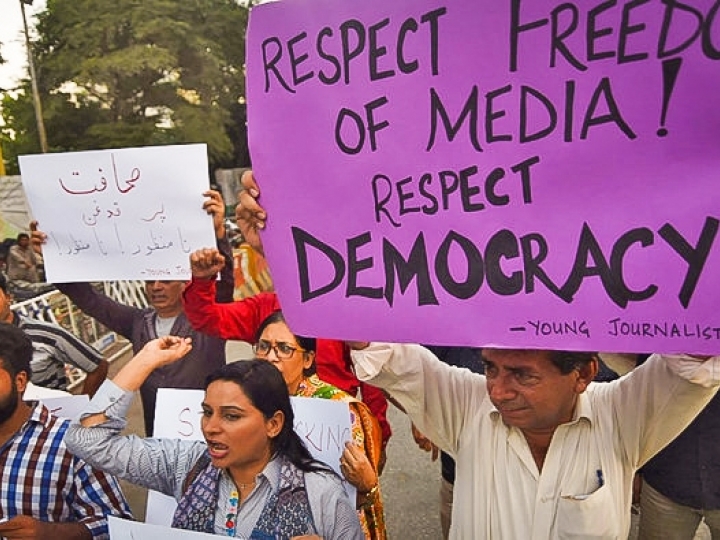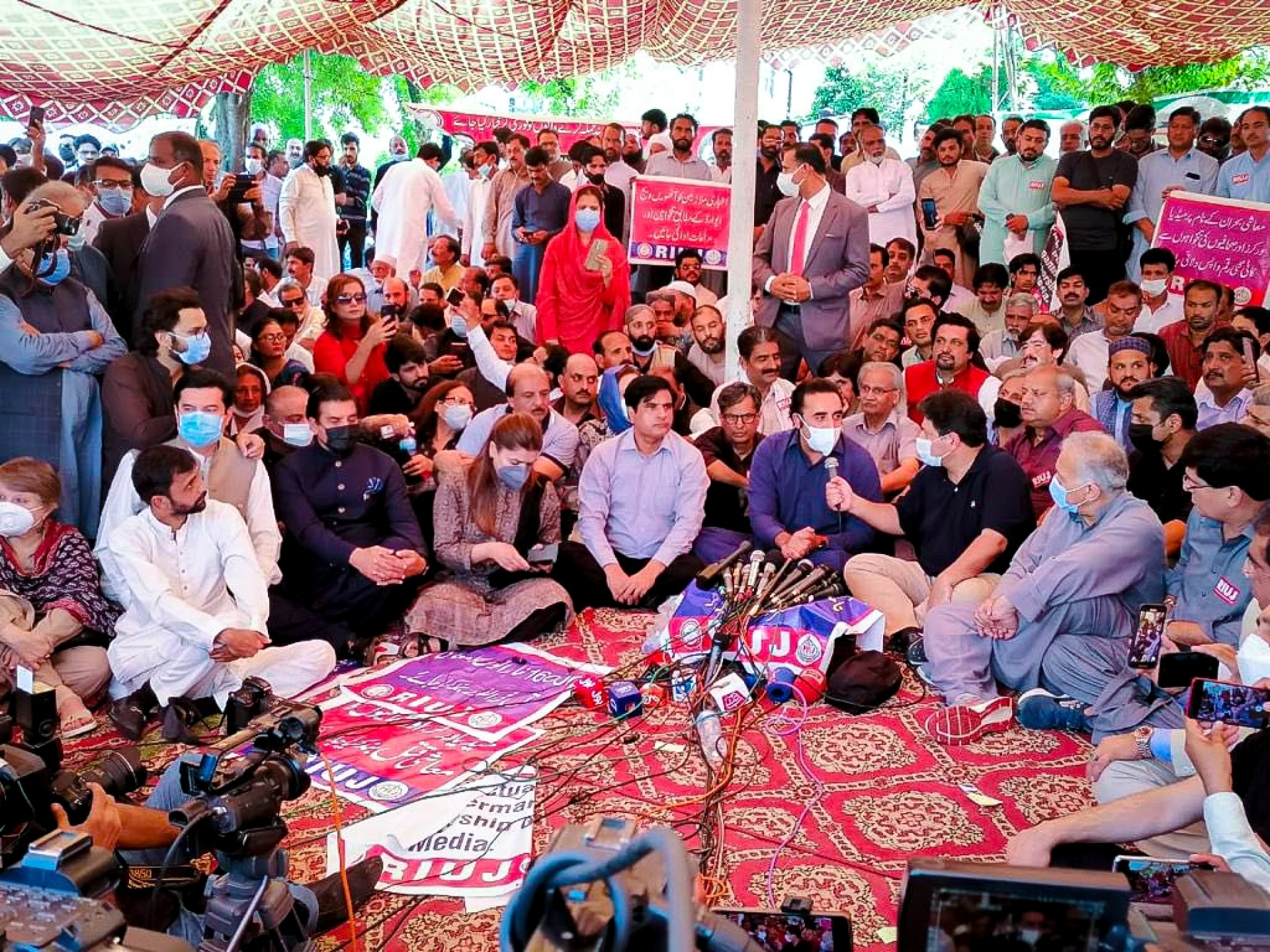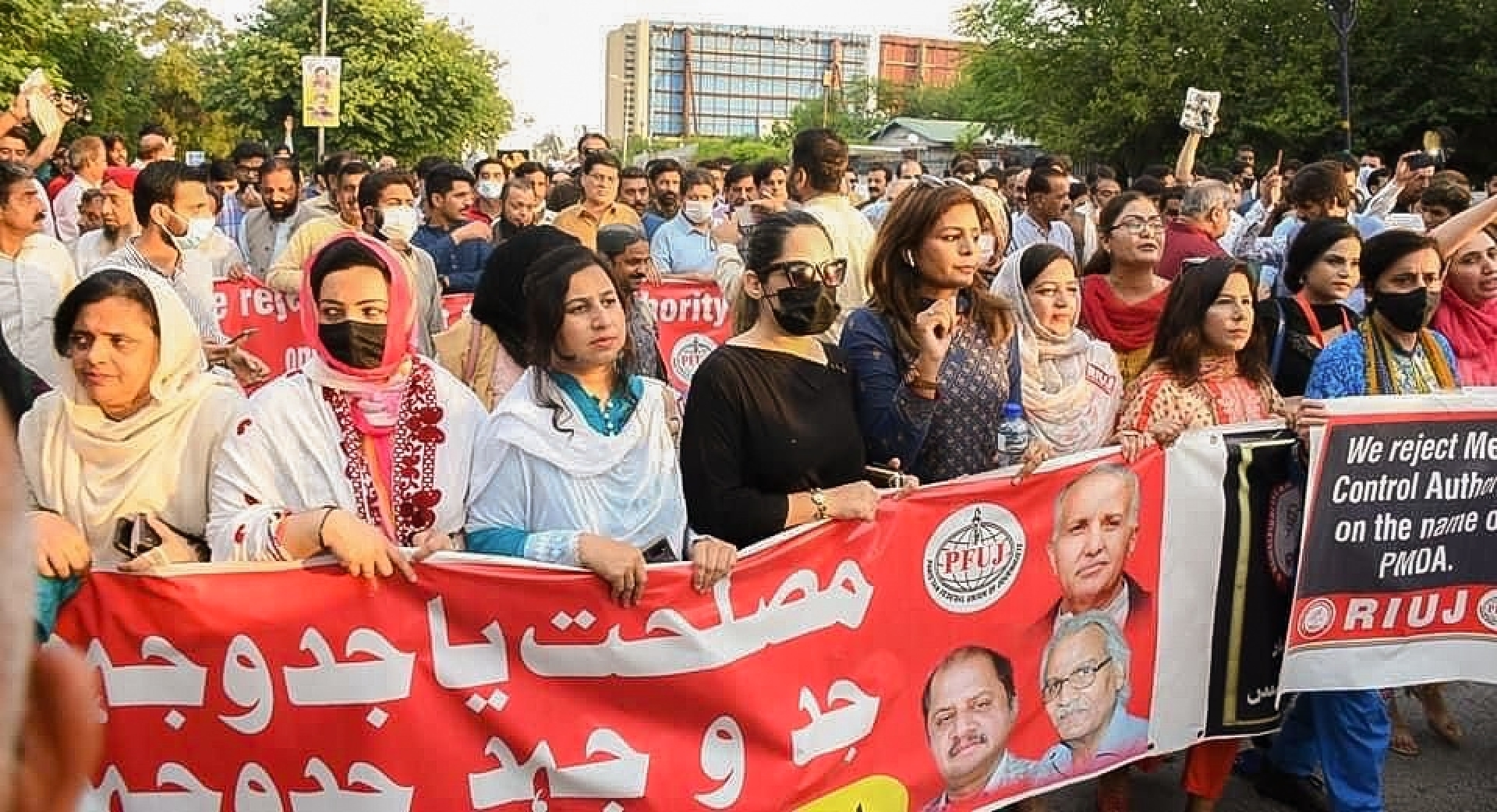A day before the President’s mandatory speech to the joint sitting of the two-house of the Pakistani Parliament, a large number of journalists from across the country had gathered in Islamabad to register their protest against the present government’s plan to introduce a new law to curb freedom of the press by establishing the government-controlled Pakistan Media Development Authority (PMDA).

The proposed law is feared to repeal the existing media legal framework and establish a new regulatory authority, the PMDA. This new government watchdog would have the powers to shutter media organizations and envisions the establishment of special tribunals to penalize journalists and media outlets for "defaming" military generals, judges, and government leaders. Media persons consider the new piece of legislation as a step towards further curbing the media and fundamental right of freedom of expression in Pakistan, which is already undermined due to the restrictive government policies and strong censorship over the media.



